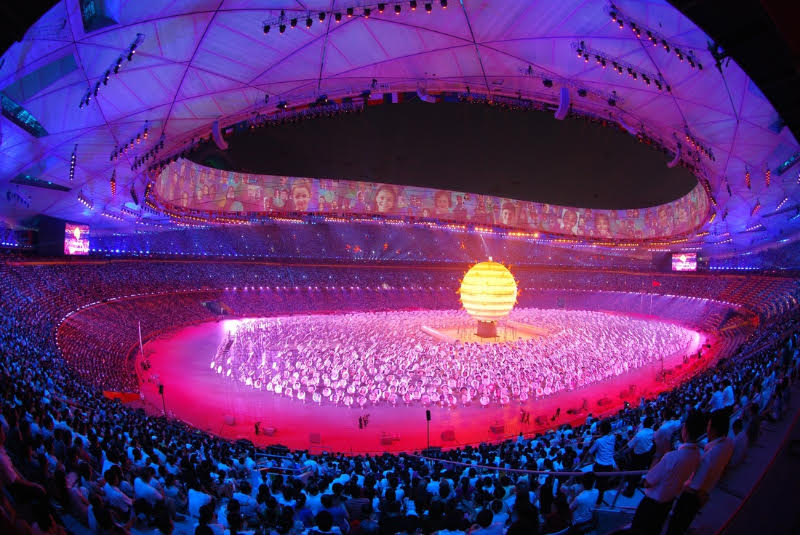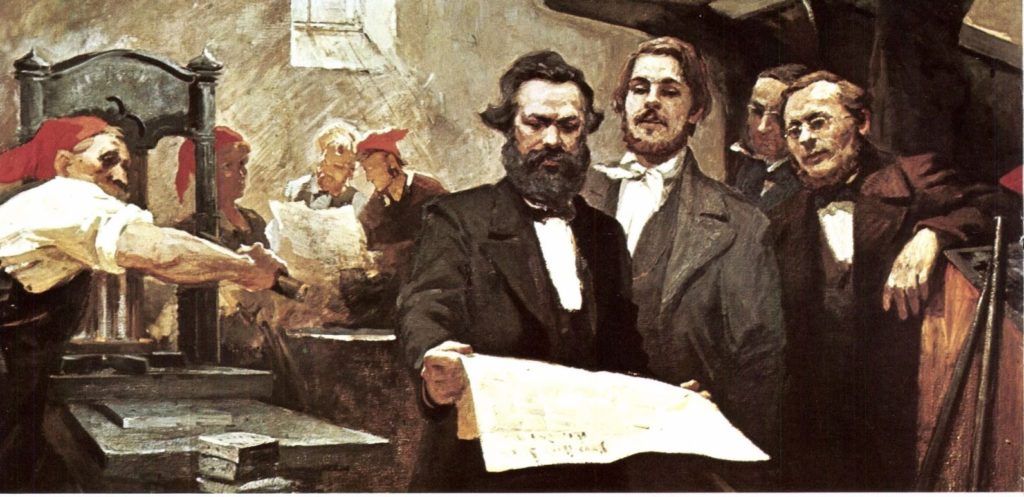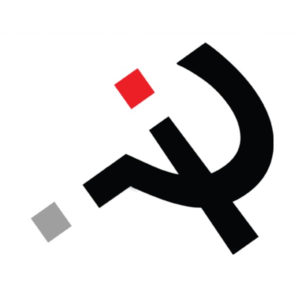
Thursdays, 6:30 - 9:00PM
1350 N Wells St, Chicago, IL 60610-1908
Find the Facebook Events for each session: https://fb.me/e/1Y4dktIPH
• required / + recommended reading
“Society is a reality sui generis; it has its own characteristics that are either not found in the rest of the universe or are not found there in the same form."
"Society is a sui generis being with its own special nature, distinct from that of its members, and a personality of its own different from individual personalities."
-- Emile Durkheim
Required background reading:
• Chris Cutrone, "Back to Herbert Spencer! Industrial vs. militant society" (2016)
Recommended supplemental parallel reading:
+ Adorno, "Static and Dynamic as Sociological Categories" (1961)
+ Adorno, Introduction to Sociology 1962 lectures
+ Adorno, Philosophical Elements of a Theory of Society 1964 lectures
+ Adorno, Philosophy and Sociology 1960 lectures
Preliminary readings:
• Adorno, “Society” (1965)
• Benjamin Constant, "The liberty of the ancients compared with that of the moderns" (1819)
Charts of terms:
+ Capital in history timeline and chart of terms
+ Being and becoming (freedom in transformation) / immanent dialectical critique chart of terms
+ Capitalist contradiction chart of terms
+ Commodity form chart of terms
+ Reification chart of terms
Week 1: June 9, 2022
• Gillian Rose, Hegel Contra Sociology (1981/95) selections: Preface for 1995 reprint, 1. The Antinomies of Sociological Reason, 7. With What Must the Science End?
Week 2: June 16, 2022
• Max Weber, The Protestant Ethic and the Spirit of Capitalism (1905) selections: Author's Introduction, Part I Chapters 1-3, Part II (+ Chapter 4,) Chapter 5
Week 3: June 23, 2022
• Auguste Comte, Introduction to Positive Philosophy (1830-42) I. The nature and importance of the positive philosophy; The Positive Philosophy of Auguste Comte vol. III Bk. VI. Social Physics pp. 1-11, 199-216, 277-344; A General View of Positivism Ch. II. The Social Aspect of Positivism pp. 63-78, Ch. VI. The Religion of Humanity pp. 340-426
Week 4: June 30, 2022
+ Chris Cutrone, "Back to Herbert Spencer! Industrial vs. militant society" (2016) [audio]
• Herbert Spencer, Principles of Sociology Vol. I Part I The Data of Sociology Ch. I-IV pp. 3-40 and Part II The Inductions of Sociology Ch. I-II pp. 447-462; On Social Evolution (Univ. Chicago selections): IV 15–16 Societal Typologies, Militancy and Industrialism and V 18–19 Ceremonial and Political Institutions; The Man Versus the State VI The Great Political Superstition
Week 5: July 7, 2022
• Emile Durkheim, Chapter 3. "The principles of 1789 and sociology" (1890); Elementary Forms of Religious Life (1912) Introduction, selections V. Social Creativity Chapters 11-12, in On Morality and Society
Week 6: July 14, 2022
• Durkheim, Chapter 10. "The dualism of human nature and its social conditions" (1914), Chapter 4. "Individualism and the intellectuals" (1898); The Division of Labor in Society (1893) Introduction (pp. 1-10), selection IV. The Evolution of Morality Chapter 6, in On Morality and Society
Week 7: July 21, 2022
• Durkheim, The Division of Labor in Society (1893) selections IV. The Evolution of Morality Chapters 7-9, in On Morality and Society; Preface to the 2nd Edition (pp. xxxi-lix)
Week 8: July 28, 2022
• Frankfurt School, Aspects of Sociology (1956) selections: Preface by Horkheimer and Adorno, Chapters I-VI, XII
• Adorno, “Society” (1965)

Thursdays, 6:30 - 9:00 pm
University Hall Room #218
1897 Sheridan Road, Evanston, IL
Join at any time / no prior knowledge assumed
Week 1. What is the Left? I. Capital in history | Oct. 10, 2019
Whoever dares undertake to establish a people’s institutions must feel himself capable of changing, as it were, human nature, of transforming each individual, who by himself is a complete and solitary whole, into a part of a larger whole, from which, in a sense, the individual receives his life and his being, of substituting a limited and mental existence for the physical and independent existence. He has to take from man his own powers, and give him in exchange alien powers which he cannot employ without the help of other men.
— Jean-Jacques Rousseau, On the Social Contract (1762)
• Max Horkheimer, "The little man and the philosophy of freedom" (1926–31)
• epigraphs on modern history and freedom by James Miller (on Jean-Jacques Rousseau), Louis Menand (on Edmund Wilson), Karl Marx, on "becoming" (from the Grundrisse, 1857–58), and Peter Preuss (on Nietzsche)
+ Rainer Maria Rilke, "Archaic Torso of Apollo" (1908)
+ Robert Pippin, "On Critical Theory" (2004)
+ Being and becoming (freedom in transformation) chart of terms
• Chris Cutrone, "Capital in history" (2008)
+ Capital in history timeline and chart of terms
+ video of Communist University 2011 London presentation
+ Capitalist contradiction chart of terms
• Cutrone, "The Marxist hypothesis" (2010)
• Cutrone, “Class consciousness (from a Marxist persective) today”
+ G.M. Tamas, "Telling the truth about class" [HTML] (2007)
Week 2. What is the Left? II. Utopia and critique | Oct. 17, 2019
• Max Horkheimer, selections from Dämmerung (1926–31)
• Adorno, “Imaginative Excesses” (1944–47)
• Leszek Kolakowski, “The concept of the Left” (1968)
• Marx, To make the world philosophical (from Marx's dissertation, 1839–41), pp. 9–11
• Marx, For the ruthless criticism of everything existing (letter to Arnold Ruge, September 1843), pp. 12–15
+ Capitalist contradiction chart of terms
+ Being and becoming (freedom in transformation) / immanent dialectical critique chart of terms
Week 3. What is Marxism? I. Socialism | Oct. 24, 2019
• Marx, selections from Economic and philosophic manuscripts (1844), pp. 70–101
+ Commodity form chart of terms
+ Being and becoming (freedom in transformation) / immanent dialectical critique chart of terms
+ Capitalist contradiction chart of terms
• Marx and Friedrich Engels, selections from the Manifesto of the Communist Party (1848), pp. 469-500
• Marx, Address to the Central Committee of the Communist League (1850), pp. 501–511
Week 4. What is Marxism? II. Revolution in 1848 | Nov. 31, 2019
• Marx, The coming upheaval (from The Poverty of Philosophy, 1847) and Class struggle and mode of production (letter to Weydemeyer, 1852), pp. 218-220
• Engels, The tactics of social democracy (Engels's 1895 introduction to Marx, The Class Struggles in France), pp. 556–573
• Marx, selections from The Class Struggles in France 1848–50 (1850), pp. 586–593
• Marx, selections from The 18th Brumaire of Louis Bonaparte (1852), pp. 594–617
Week 5. What is Marxism? III. Bonapartism | Nov. 7, 2019
+ Karl Korsch, "The Marxism of the First International" (1924)
• Marx, Inaugural address to the First International (1864), pp. 512–519
• Marx, selections from The Civil War in France (1871, including Engels's 1891 Introduction), pp. 618–652
+ Korsch, Introduction to Marx, Critique of the Gotha Programme (1922)
• Marx, Critique of the Gotha Programme, pp. 525–541
• Marx, Programme of the Parti Ouvrier (1880)
Week 6. What is Marxism? IV. Critique of political economy | Nov. 14, 2019
The fetish character of the commodity is not a fact of consciousness; rather it is dialectical, in the eminent sense that it produces consciousness. . . . [P]erfection of the commodity character in a Hegelian self-consciousness inaugurates the explosion of its phantasmagoria.
— Theodor W. Adorno, letter to Walter Benjamin, August 2, 1935
+ Commodity form chart of terms
+ Capitalist contradiction chart of terms
+ Organic composition of capital chart of terms
• Marx, selections from the Grundrisse (1857–61), pp. 222–226, 236–244, 247–250, 276–293 ME Reader pp. 276-281
• Marx, Capital Vol. I, Ch. 1 Sec. 4 "The fetishism of commodities" (1867), pp. 319–329
+ Being and becoming (freedom in transformation) / immanent dialectical critique chart of terms
Week 7. What is Marxism? V. Reification | Nov. 21, 2019
• Georg Lukács, “The phenomenon of reification” (Part I of “Reification and the consciousness of the proletariat,” History and Class Consciousness, 1923)
+ Commodity form chart of terms
+ Reification chart of terms
+ Capitalist contradiction chart of terms
+ Organic composition of capital chart of terms
+ Being and becoming (freedom in transformation) / immanent dialectical critique chart of terms
Winter break readings
+ Richard Appignanesi and Oscar Zarate / A&Z, Introducing Lenin and the Russian Revolution / Lenin for Beginners (1977)
+ Sebastian Haffner, Failure of a Revolution: Germany 1918–19 (1968)
+ Edmund Wilson, To the Finland Station: A Study in the Writing and Acting of History (1940), Part II. Ch. (1–4,) 5–10, 12–16; Part III. Ch. 1–6
+ Tariq Ali and Phil Evans, Introducing Trotsky and Marxism / Trotsky for Beginners (1980)
+ James Joll, The Second International 1889–1914 (1966)
Week 8. Nov. 28, 2019 U.S. Thanksgiving break
Week 9. What is Marxism? VI. Class consciousness | Dec. 5, 2019
• Lukács, “Class Consciousness” (1920), Original Preface (1922), “What is Orthodox Marxism?” (1919), History and Class Consciousness (1923)
+ Capitalist contradiction chart of terms
+ Reification chart of terms
+ Being and becoming (freedom in transformation) / immanent dialectical critique chart of terms
+ Marx, Preface to the First German Edition and Afterword to the Second German Edition (1873) of Capital (1867), pp. 294–298, 299–302
Week 10. What is Marxism? VII. Ends of philosophy | Dec. 14, 2019 / Jan. 18, 2020
• Korsch, “Marxism and philosophy” (1923)
+ Capitalist contradiction chart of terms
+ Being and becoming (freedom in transformation) / immanent dialectical critique chart of terms
+ Marx, To make the world philosophical (from Marx's dissertation, 1839–41), pp. 9–11
+ Marx, For the ruthless criticism of everything existing (letter to Arnold Ruge, September 1843), pp. 12–15
+ Marx, "Theses on Feuerbach" (1845), pp. 143–145
Winter–Spring 2020
II. Introduction to revolutionary Marxism

Thursday, Oct. 3rd
6:30 - 9:00 p.m.
University Hall
Room 2018
"In the mid-19th century, Marx and Engels observed in the Communist Manifesto that a "specter" was haunting Europe: the specter of Communism. A century and a half later, it is Marxism itself that continues to haunt the Left, while capitalism remains.
What does it mean that Marx and Marxism still hold appeal, while political movements for socialism are weak or non-existent? What were Marxism's original points of departure for considering radical possibilities for freedom that might still speak to the present?
Does Marxism still matter?"
This teach-in will be led by Lou Sterrett
A teach-in on trans liberation held by David Faes at Northwestern University on June 4th, 2019.
Description
The socialist Left, which historically stood for increasing the scope of freedom, has historically shifted positions on issues of gender and sexuality. Recently, there has been some conflict over the trans identity, how it should be taken up by the Left if at all. What do such controversies tell us about the politics of sexual freedom and the history of the Left, moving forward? How did the historical socialist Left relate the struggle for sexual freedom to the broader struggle for freedom in greater society? What exactly do contemporary socialists mean today when they speak of sexual liberation, and what does it have to do with the broader task of the Left, of increasing the scope of human freedom?

